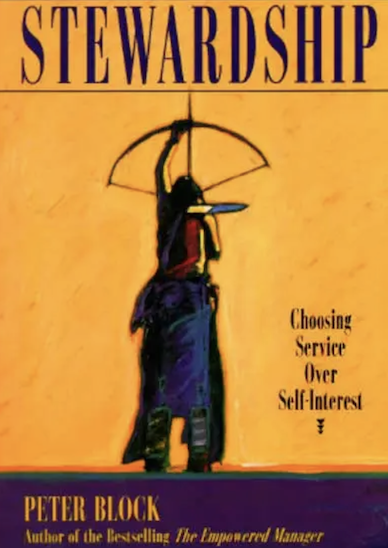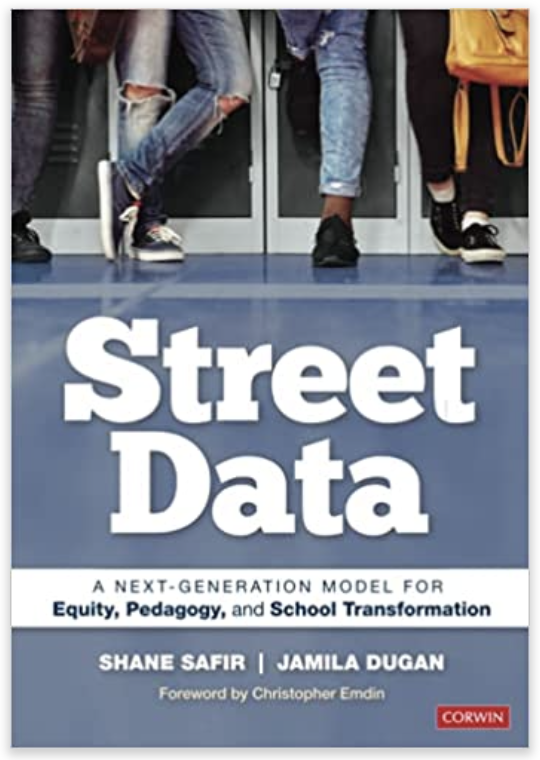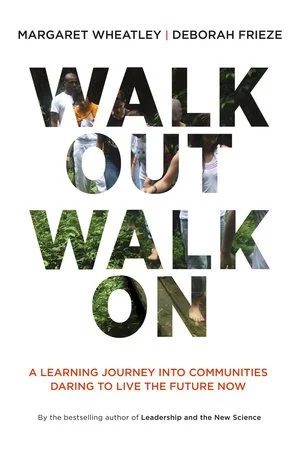Inquiry Inventory - 03/16/22
Here at The Human School, a big part of what brought us together is a deep love of reading and learning. We commit, as part of our learning journey, to sharing our week’s reading with you and what influences our thinking and learning.
Each week, you will see a post with what we’re reading, a quote, and an insight from that reading that leads us to deeper thinking.
To learn more about what we are reading, please take a look at our Connection Catalog.
Stewardship: Choosing Service Over Self-Interest by Peter Block
“Stewardship is defined in this book as the choice to preside over the orderly distribution of power. This means giving people at the bottom and the boundaries of the organization choice over how to serve a customer, a citizen, a community. It is the willingness to be accountable for the well-being of the larger organization by operating in service, rather than in control, of those around us. Stated simply, it is accountability without control or compliance.”
I have been thinking a lot about power lately. Much of the pushback that I’ve heard about the transformation of schooling includes stories of contexts that seem very top-down; where power is vested in roles at the top of the organization.
The quote resonates because it speaks to the mindshift that we are all leaders. Coupled with that, it also demonstrates that the complexity of our challenge—education is tightly intertwined with other structures and systems that need change.
—Randy
Street Data by Shane Safir
and Jamila Dugan
“We have retained a vision of what is possible when we build classrooms and schools and systems around students’ brilliance, cultural wealth, and intellectual potential rather than self-serving savior narratives that have us ‘fixing’ and ‘filling’ academic gaps.”
The last part of this line in particular hit me in the gut - I have had those conversations about filling academic gaps. I am having them now in my current context. And while I believe there are places where students need support, I hear the need to focus on the assets, on the potential, and on the brilliance more. I wonder how we keep our focus on those assets even amid the swirling needs of the system, especially as we work to transform it. Street Data pushes the narrative around data conversations, away from the sterile association most typically have to one that is much more human-centered and one of hope for what’s can come next.
—Rachel
Walk Out, Walk On by Meg Wheatley and Deborah Frieze
“Walk Outs are people who bravely choose to leave behind situations, jobs, relationships, and ideas that restrict and confine them, anything that inhibits them. They walk on to the ideas, people, and practices that enable them to explore and discover new gifts, new possibilities.”
I wonder how many of us can find the courage to “Walk Out” on the old paradigm of schooling and then “Walk On” to a new vision of schooling focused on learning and learners themselves. What I love about this text is that the stories that are told are truly global and insightful. It reminds us that here in the United States, our focus is not as universal or “the best” as we may think it is. The authors exemplify objectorship and storytelling while also highlighting how other communities have embraced invention and design communaly.
—Chad



